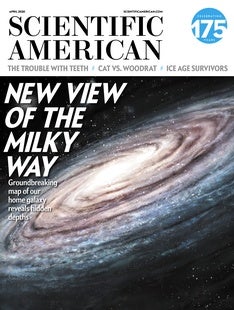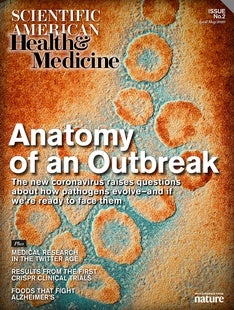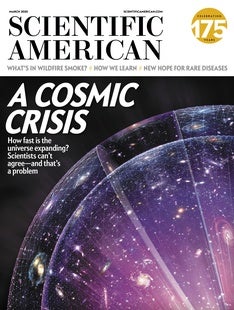 |
| April 07, 2020 |
Dear Reader,
Happy World Health Day! For this year's celebration, WHO is highlighting the vital role of nurses and midwives while also honoring healthcare workers on the front lines in the battle against coronavirus. In an editorial from our archive, Scientific American explains why widespread adoption of midwifery in the U.S. can lead to better maternity care and birth outcomes. Read the full story below. Also featured in today's news roundup: astronomers stress the need to protect the moons' far side as the race to return to the lunar surface accelerates; why liquor stores should be considered essential businesses during social distancing, and how a new drug blocked the coronavirus behind COVID-19 from replicating itself in human lung cells in test tubes. Important information for our print subscribers |
| | Sunya Bhutta, Senior Editor, Audience Engagement
@sunyaaa | |
 |
| |
| |
| |
| Policy & Ethics Yes, Liquor Stores Are Essential Businesses Keeping them open can help people with alcohol use disorder avoid withdrawal symptoms including tremors, hallucinations and seizures | | By Max Jordan Nguemeni Tiako,Kelsey C. Priest | | | |
| |
| Biology Coronavirus Can Infect Cats Tigers and lions at the Bronx Zoo have tested positive for the virus, and studies show that house cats--but apparently not dogs--can become infected. |  | By W. Wayt Gibbs | 03:23 | | | |
FROM THE STORE
 | | | |
| |
FROM THE ARCHIVE
 | | | |
| QUOTE OF THE DAY
 "To the nurses and midwives of the world: Thank you for working round the clock to fight the COVID-19 pandemic. Thank you for the difference you are making, every day and everywhere. Happy World Health Day 2020, a day that we dedicate to YOU!" World Health Organization via Twitter | |
LATEST ISSUES
 |
| |
| Questions? Comments?  | |
| Download the Scientific American App |
| |
| |



















Comments
Post a Comment